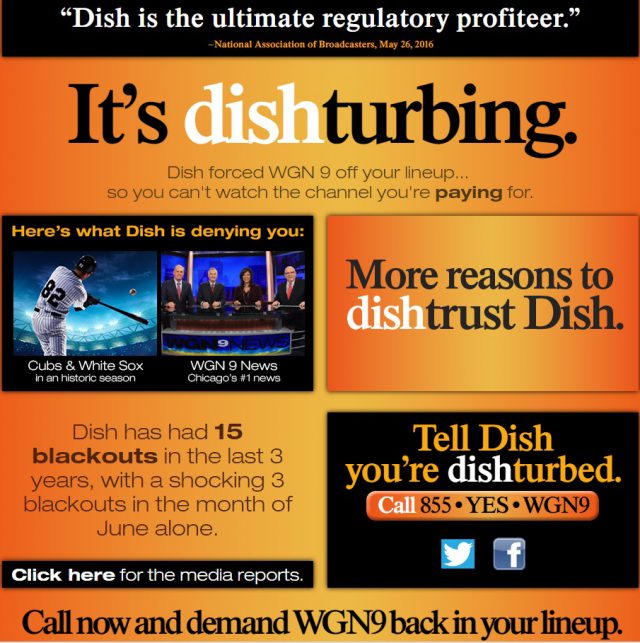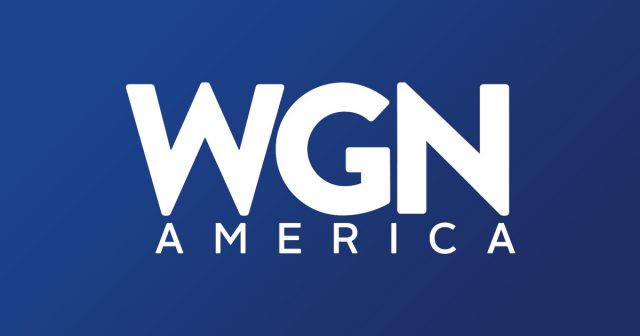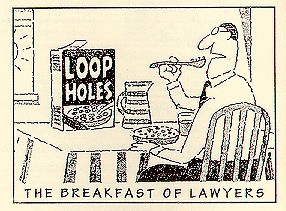 Comcast announced last week it will invest $100 million in fiber optic and coaxial cable to expand its network for businesses and residents across the Chicago region, but not before it slaps a usage cap on Chicagoland internet users forced to join its compulsory data cap “trial.”
Comcast announced last week it will invest $100 million in fiber optic and coaxial cable to expand its network for businesses and residents across the Chicago region, but not before it slaps a usage cap on Chicagoland internet users forced to join its compulsory data cap “trial.”
Beginning Aug. 1, customers who exceed 1 terabyte of data usage per month will face a nasty overlimit fee of $10 for each 50GB of additional usage they rack up over the course of a billing cycle. Customers who want to keep the unlimited broadband plan they have today can, if they are willing to pay an extra $50 a month.
Comcast’s PR department has christened the incoming data cap the “Terabyte Internet Experience,” suggesting customers will now have the privilege of using up to 1,000GB each month without facing extra charges. But the plan customers have until the end of this month already allows that, and more, without facing overlimit fees that will top out at $200 a month.
Customers like Greg believe Comcast has a different agenda imposing data caps.
“We’ll teach those cord cutters a lesson,” he wrote. “We’re going to get your money one way or another. Comcast is just greedy, they want to extort as much money as they can from people. I’m paying $90 for internet, with the option to charge more based on their conditions. Remember when consumers had options?”
Other residents looking for an opt-out of the “trial” are out of luck.
 “Got the email this week we get to be part of this data cap ‘trial,'” shared another customer. “How lucky are we? And what do we get for being part of this trial? Absolutely nothing! And can we opt out of this trial? Heck no!”
“Got the email this week we get to be part of this data cap ‘trial,'” shared another customer. “How lucky are we? And what do we get for being part of this trial? Absolutely nothing! And can we opt out of this trial? Heck no!”
Comcast claims almost nobody will be impacted by the terabyte cap, predicting as few as 1% of their customers reach that level of usage. But 25% of Comcast customers nationwide have now received email and other notifications about a data cap plan “trial” Comcast has spent time, money, and resources trying to explain and implement in a growing number of cities in their service area. Many ask if so few are affected, why make the effort?
The FCC received 11,812 complaints about Comcast in 2015, mostly about its data cap trials. That is at least 5,000 more complaints than AT&T, Verizon, and Time Warner Cable received combined. That would seem to indicate a significant percentage of Comcast customers are concerned about data caps, even if they are not among the “1%” Comcast now claims will be affected by caps.
Comcast’s plan to invest $100 million in Chicago, primarily on fiber expansion, may not placate customers who do not appreciate their internet usage being capped at the same time Comcast’s network capacity continues to increase. Most of the upgrades may be targeted to benefit Comcast’s business customers. The expansion will string 50 miles of fiber cable across seven square miles of downtown Chicago, including the Loop, River North, and River West. Additional expansion will target the city’s Back of the Yards and Bridgeport neighborhoods at in the Peterson-Pulaski business district near O’Hare.
Comcast claims the upgrade will expand internet, video, voice, and home security/automation services for residential customers. They will just need to make sure not to use them too much.


 Subscribe
Subscribe



 Charter Communications is promising its Southern California customers it won’t bungle the transition from Time Warner Cable to Charter Communications like Frontier Communications
Charter Communications is promising its Southern California customers it won’t bungle the transition from Time Warner Cable to Charter Communications like Frontier Communications  But not all customers are happy about Charter’s slow transition plans. Customers waiting for Time Warner Cable Maxx upgrades, some already in progress, may be out of luck. Charter’s new management team put an indefinite hold on Time Warner’s more aggressive upgrade plans in favor of Charter’s much more modest commitment to offer customers two broadband speed tiers – 60 and 100Mbps over the next 18 months. Customers in the northeast and midwest have been told there are no longer any definitive dates for the introduction of Maxx, which offers free speed upgrades up to 300Mbps.
But not all customers are happy about Charter’s slow transition plans. Customers waiting for Time Warner Cable Maxx upgrades, some already in progress, may be out of luck. Charter’s new management team put an indefinite hold on Time Warner’s more aggressive upgrade plans in favor of Charter’s much more modest commitment to offer customers two broadband speed tiers – 60 and 100Mbps over the next 18 months. Customers in the northeast and midwest have been told there are no longer any definitive dates for the introduction of Maxx, which offers free speed upgrades up to 300Mbps. A
A  “The overbuild condition imposed by the FCC on Charter is stunningly bad and inexplicable government policy,” ACA president Matthew Polka said in a statement. “On the one hand, the FCC found that Charter will be too big and therefore it imposed a series of conditions to ensure it does not exercise any additional market power. At the same time, the FCC, out of the blue, is forcing Charter to get even bigger.”
“The overbuild condition imposed by the FCC on Charter is stunningly bad and inexplicable government policy,” ACA president Matthew Polka said in a statement. “On the one hand, the FCC found that Charter will be too big and therefore it imposed a series of conditions to ensure it does not exercise any additional market power. At the same time, the FCC, out of the blue, is forcing Charter to get even bigger.” Notably, Charter is allowed to buy up other small telecom companies and count up to 250,000 of their customers towards the one million new homes served requirement. If those are small rural cable companies, that means the FCC is allowing Charter to grow even larger instead of providing more competition. Charter could also choose to overbuild municipal broadband providers and co-ops, especially in areas next to existing Charter/TWC/Bright House systems. That would harm the FCC’s current interest in removing roadblocks to publicly owned broadband networks. Enthusiasm for such networks could be dampened if Charter is willing to wire the area at their own expense.
Notably, Charter is allowed to buy up other small telecom companies and count up to 250,000 of their customers towards the one million new homes served requirement. If those are small rural cable companies, that means the FCC is allowing Charter to grow even larger instead of providing more competition. Charter could also choose to overbuild municipal broadband providers and co-ops, especially in areas next to existing Charter/TWC/Bright House systems. That would harm the FCC’s current interest in removing roadblocks to publicly owned broadband networks. Enthusiasm for such networks could be dampened if Charter is willing to wire the area at their own expense.